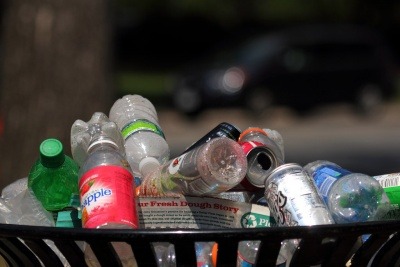‘All-in’ deposit return scheme has Gove’s support

At Kew Gardens in London yesterday (16 July), Gove spoke of a political, economic and moral “need to act” to protect the environment, stating: “Time is running out to make the difference we need; to repair the damage we as a species have done to the planet we have plundered.”
He continued: “We cannot leave this planet to the next generation more polluted, more dangerous, denuded of its natural riches and increasingly inhospitable to all life.”
As well as issuing stark warnings about climate change and the degradation of the natural world, Gove discussed a number of specific policy proposals and developments, setting out some of his ambitions for the government’s new Environment Bill, which is now set for introduction in 2020 (the draft Bill was published in December 2018). He pledged that the proposed Office for Environmental Protection, to act as an environmental enforcement body after Brexit, would have “real teeth”, with the power to take government to court.
On waste and resources, he confirmed his commitment to reforming the producer responsibility system so that packaging producers are forced to pay the full net cost of collecting and managing their waste packaging.
‘The greatest possible incentive to recycle’
Gove also announced that he would be pushing for an ‘all-in’ DRS model, which would see a small charge added to the cost of a wide range of drinks containers – much like the Scottish Government's recently announced DRS proposal, which would cover all containers above 50 millilitres and up to three litres in size made from aluminium and steel, glass or PET plastic. To encourage recycling, the deposit will be able to be recouped when returning the container to a collection point. Gove said the ‘all-in’ model would “give consumers the greatest possible incentive to recycle.”

As such, many groups, including the Local Authority Recycling Advisory Committee (LARAC), prefer an ‘on-the-go’ DRS – one that would accept those items more commonly purchased and consumed outside of the household, which aren’t generally captured by household recycling, such as disposable coffee cups.
A number of businesses have also suggested that a DRS should be a last resort measure to boost recycling if other reforms – more consistent collections across the UK, mandatory food waste services for English households and the introduction of extended producer responsibility (EPR) for packaging producers – did not produce the desired results.
While deposit schemes in other European countries have helped to boost recycling rates, these have not been overlaid onto a pre-existing kerbside collection scheme as comprehensive as in the UK, something that would certainly create added complications.
Jacob Hayler, Executive Director of the Environmental Services Association (ESA), expressed surprise that Gove had made such a “decisive conclusion” on the scope of the proposed DRS, given that “much of the detail of the new producer responsibility scheme has yet to be developed and agreed.”
Hayler welcomed Gove’s commitment to a full net cost EPR regime, but stated: “It is important that interactions between a DRS and a new producer responsibility scheme are fully analysed to ensure that all parts of the system work together to achieve the best environmental outcomes.
“And of course all this must be underpinned by a strong Environment Bill that sets a clear long-term direction of travel and the governance structures to hold everyone to account. We look forward to reading the full Environment Bill to ensure it does just that.”
Phil Piddington, ESA Chair and Managing Director of waste management company Viridor, added: "We are pleased to hear Mr Gove say he wishes to work with business to make deposit return schemes as effective as possible. It is crucial that we match policy and ambition and investment, ensuring the recycling material which may be currently escaping the net is captured, put back in the economy, kept out of our seas and off our beaches.”
With Prime Minister Theresa May soon to leave office, it is possible that Gove will not remain in his post as Environment Secretary if May’s successor decides Cabinet is in need of a shakeup. As such, it is as yet uncertain whether the Defra’s commitment to these pledges will remain if Gove leaves his post.











